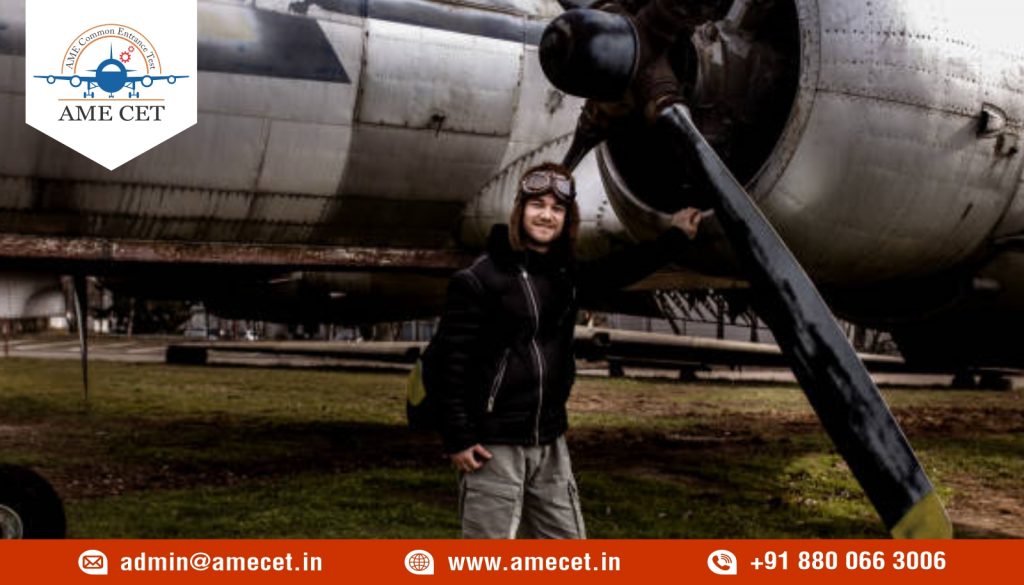How B.Sc. Aviation different from BBA in Aviation?
Posted on : 11 January, 2024 1:53 pm
BSc in Aviation
A Bachelor of Science B.Sc in Aviation is an undergraduate degree program that focuses on the technical aspects of aviation. It includes coursework in aerodynamics, aircraft systems, and aviation regulations, preparing students for roles in aviation operations, engineering, and related technical positions.
Focus on Technical Expertise
- Emphasizes a strong foundation in technical aspects of aviation.
- Includes in-depth courses on aerodynamics, aircraft systems, and aviation regulations.
- Geared towards individuals interested in pursuing technical roles such as pilots, engineers, or maintenance professionals.
Scientific and Engineering Oriented
- Incorporates a scientific and engineering approach to understanding aviation principles.
- Equips students with a detailed understanding of aircraft design, mechanics, and operations.
Career Pathways
- Primarily prepares students for roles in aviation operations, engineering, and technical positions within the aviation industry.
- Suitable for those with a passion for the technical intricacies of aviation.
BBA in Aviation
A Bachelor of Business Administration (BBA) in Aviation is an undergraduate program that emphasizes the business and managerial aspects of the aviation industry. It covers subjects such as aviation management, airline operations, and airport management, preparing students for leadership roles in airline administration, airport management, and related sectors.
Business and Management Focus
- Concentrates on the business and management aspects of the aviation industry.
- Covers subjects such as aviation management, airline operations, and airport management.
Leadership and Administration Skills
- Develops skills in leadership, administration, and strategic decision-making within the aviation context.
- Provides a broader understanding of the business side of aviation, including marketing, finance, and organizational management.
Industry Management Perspective
- Explores the functioning of airlines, airports, and aviation-related businesses from a managerial standpoint.
- Suitable for individuals aspiring to work in managerial roles, such as airline executives, airport managers, or aviation business analysts.
Diverse Career Opportunities
- Offers diverse career opportunities beyond technical roles, including managerial, administrative, and business-oriented positions.
- Appeals to those interested in the broader business aspects of the aviation industry.
Eligibility Criteria for BBA and B.sc in aviation
- For BBA in Aviation: Candidates must have successfully completed their 12th standard or an equivalent qualification in any stream.
- For B.sc in Aviation: Candidates must have completed their 10+2 with Physics, Chemistry and Mathematics or 3 year Diploma in any engineering course featuring Mathematics and Physics as core subjects, are also eligible for admission.
Salary package after Completing BBA and B.sc in Aviation
Salaries after completing a BBA in Aviation or BSc in Aviation in India can vary based on factors such as job role, experience, location, and the specific sector within the aviation industry.
- For BBA in Aviation: The starting average salary for BBA in Aviation graduates ranges from INR 3 Lakhs to 5 Lakhs per annum based on the skill set of the candidate.
- For B.sc in Aviation: The starting average salary for B.Sc in Aviation graduates ranges from INR 3 Lakhs to 5 Lakhs per annum based on the skill set of the candidate.
Career Options After BBA and B.sc in Aviation
Career options after BBA in Aviation
- Airport Management: Roles in airport operations, overseeing services, and ensuring smooth functioning.
- Airline Operations: Management positions focusing on airline services, scheduling, and customer relations.
- Aviation Marketing and Sales: Engaging in marketing strategies and sales for aviation-related products and services.
- Ground Handling Services: Involvement in ground services, including baggage handling and passenger assistance.
- Aviation Safety and Security: Careers ensuring compliance with safety regulations and implementing security measures.
Career Options after B.Sc in Aviation
- Flight Attendant: Flight attendants prioritize passenger safety and comfort , checking emergency equipment, maintaining cabin cleanliness, and ensuring an ample supply of food and beverages for a pleasant travel experience.
- Air Traffic Controller: Air traffic controllers use radar to monitor aircraft location and communicate with pilots via radio.
- Aircraft Maintenance Professional: Aircraft maintenance professionals inspect and repair mechanical, hydraulic, and structural systems using tools.
- Cargo Manager: Responsible for overseeing cargo operations, the cargo manager ensures adherence to procedures during loading, storing, and unloading goods from airplanes.
- Airport Ground Duty Manager: Airport ground duty managers supervise staff, implement operational procedures, and coordinate projects and expenditures.
In summary, while BSc in Aviation focuses on technical aspects and is suitable for those interested in hands-on roles, BBA in Aviation provides a business-oriented perspective, preparing individuals for managerial positions within the aviation sector. The choice between the two depends on one’s career goals and interests within the dynamic field of aviation.

